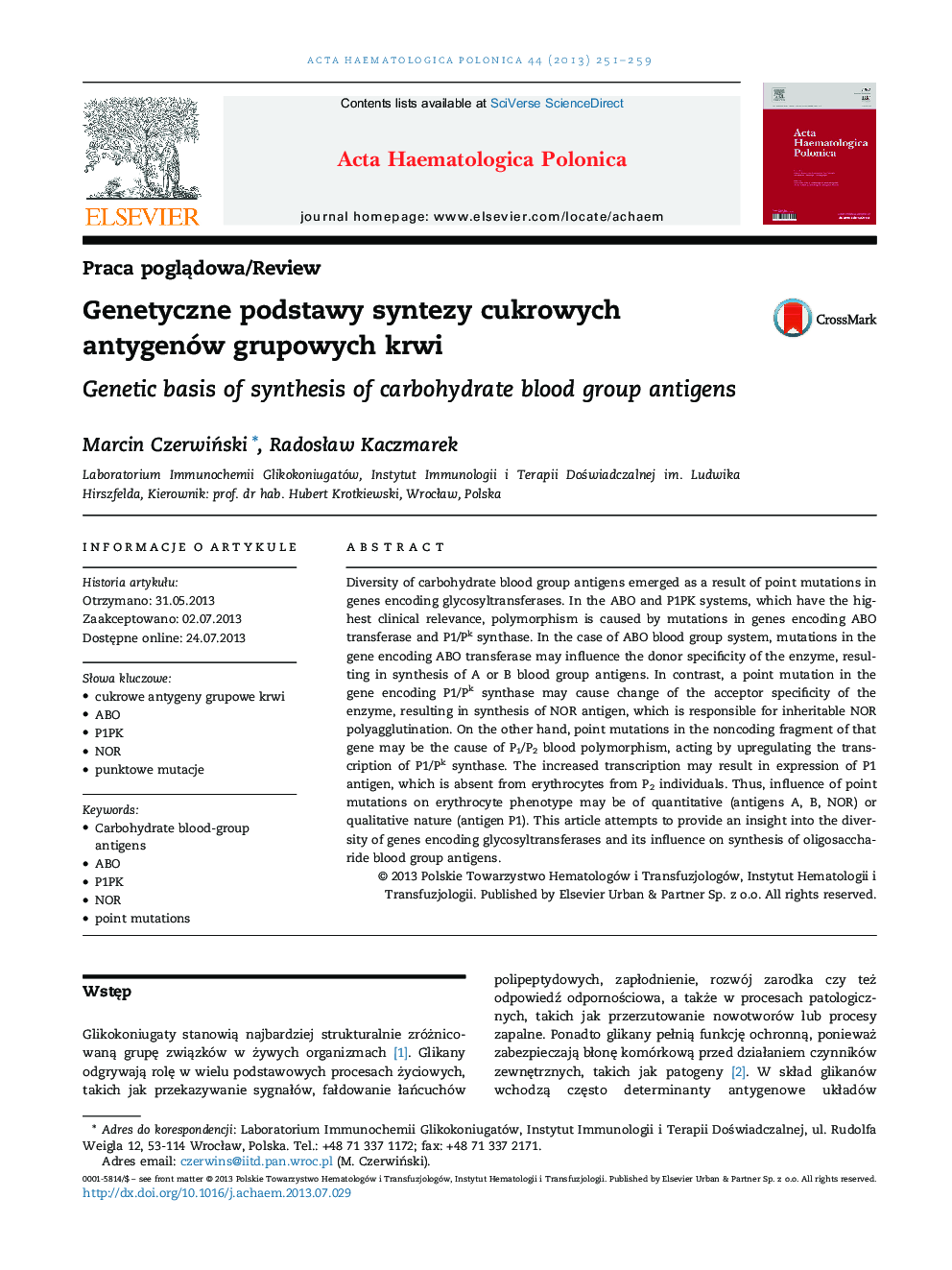| Article ID | Journal | Published Year | Pages | File Type |
|---|---|---|---|---|
| 3328350 | Acta Haematologica Polonica | 2013 | 9 Pages |
Abstract
Diversity of carbohydrate blood group antigens emerged as a result of point mutations in genes encoding glycosyltransferases. In the ABO and P1PK systems, which have the highest clinical relevance, polymorphism is caused by mutations in genes encoding ABO transferase and P1/Pk synthase. In the case of ABO blood group system, mutations in the gene encoding ABO transferase may influence the donor specificity of the enzyme, resulting in synthesis of A or B blood group antigens. In contrast, a point mutation in the gene encoding P1/Pk synthase may cause change of the acceptor specificity of the enzyme, resulting in synthesis of NOR antigen, which is responsible for inheritable NOR polyagglutination. On the other hand, point mutations in the noncoding fragment of that gene may be the cause of P1/P2 blood polymorphism, acting by upregulating the transcription of P1/Pk synthase. The increased transcription may result in expression of P1 antigen, which is absent from erythrocytes from P2 individuals. Thus, influence of point mutations on erythrocyte phenotype may be of quantitative (antigens A, B, NOR) or qualitative nature (antigen P1). This article attempts to provide an insight into the diversity of genes encoding glycosyltransferases and its influence on synthesis of oligosaccharide blood group antigens.
Keywords
Related Topics
Life Sciences
Immunology and Microbiology
Immunology
Authors
Marcin CzerwiÅski, RadosÅaw Kaczmarek,
